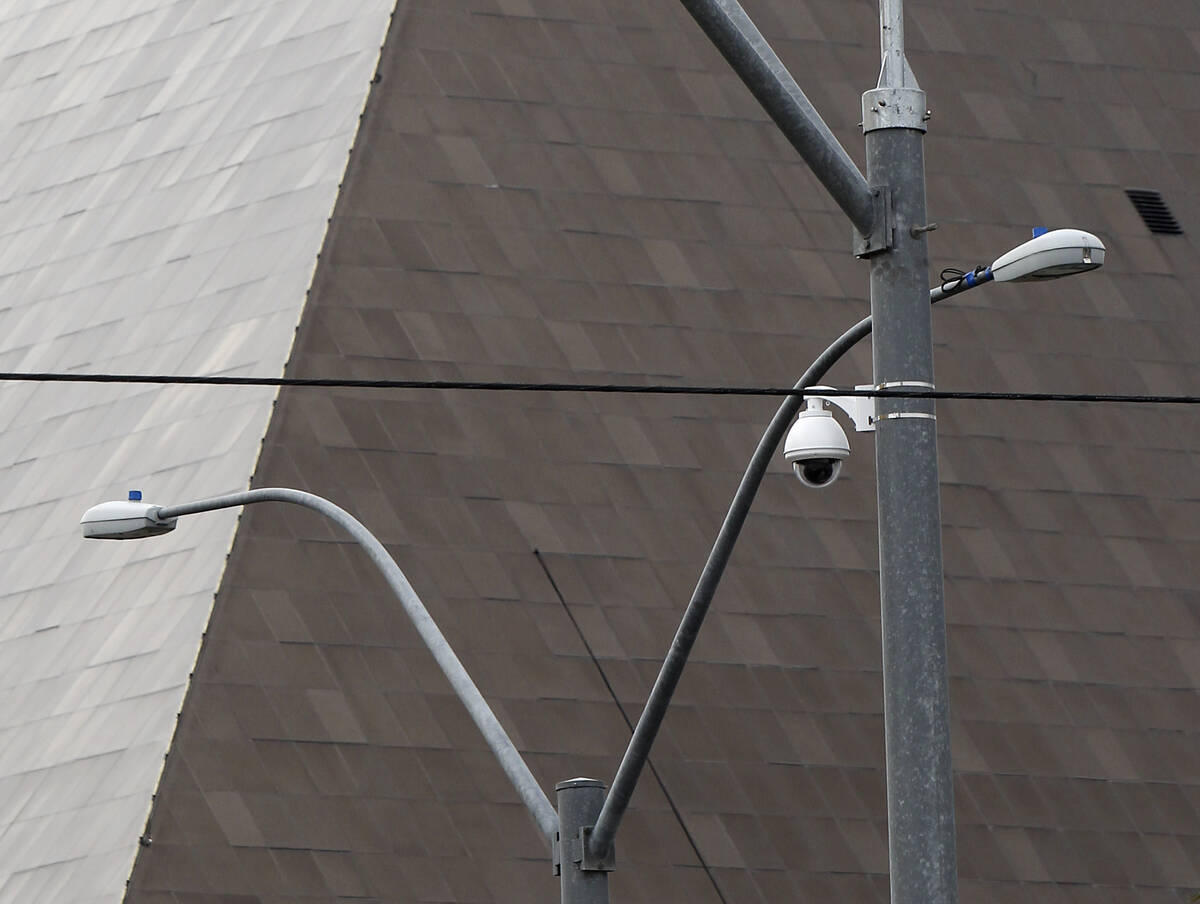COMMENTARY: Smile, they’re monitoring your every move
A wise man once said, “Those who would give up essential liberty to purchase a little temporary safety, deserve neither liberty nor safety.” While Benjamin Franklin uttered those words in reference to a tax dispute, his comment has become a rallying cry for those concerned about an encroaching surveillance state.
The issue has become more relevant in Nevada of late, as Henderson and Las Vegas police have installed license plate readers throughout town, and the Legislature will likely again take up the issue of using camera technology to track down red-light runners.
This a debate well worth having. To what extent will the public accept the state’s increasing use of potentially intrusive practices?
Many Americans in recent years have happily sacrificed their privacy for the enjoyment and convenience of their electronic devices and are now more likely to accept further privacy infringements. Yet there is a difference between a store owner using cameras to deter shoplifting and law enforcement officials placing cameras on every corner to track the populace.
The Bill of Rights doesn’t exist to make things easier for the government. On the contrary, it imposes restraints on state actors to ensure they don’t trample the rights and liberties of citizens in the process of carrying out their duties. That includes the Fourth Amendment’s protection against unreasonable searches and seizures.
“Following someone’s every move can tell you some incredibly intimate details about them, such as where they work, who they associate with, whether or not they’re religious, what hobbies they have and any medical conditions they may have,” said Robert Frommer, an attorney with the Institute for Justice, which is challenging the use of license plate readers in Virginia. “This type of intrusive, ongoing monitoring of someone’s life is not just creepy, it’s unconstitutional.”
Defenders of the practice often argue that Americans have no guarantee of privacy outside their homes. But police are not free to pull over and search vehicles without probable cause, nor may they randomly stop pedestrians to rifle through their personal belongings.
Some people maintain that those who have done nothing wrong should have nothing to hide. This is tacit embrace of tyranny which ignores that others may not be so sanguine about relinquishing the rights for which so many brave Americans fought and died.
Concerns about motorist safety and rising crime are understandable. But caution must prevail. There must be constitutional guardrails to balance our liberties with the need for security. History shows us that an overzealous government surveillance state will be ripe for abuse, anathema to a free society and a step closer to authoritarianism no matter how convenient it might be for law enforcement.

















